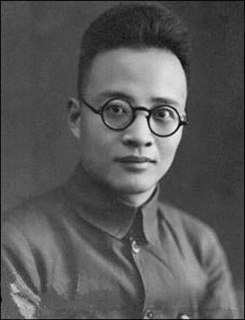 W
WQin Bangxian, better known as Bo Gu was a senior leader of the Chinese Communist Party and a member of the 28 Bolsheviks.
 W
WChen Pixian was a Chinese Communist revolutionary and politician. He served in several prominent roles, including party chief of Shanghai and party chief of Hubei province. He was purged at the beginning of the Cultural Revolution but was later rehabilitated.
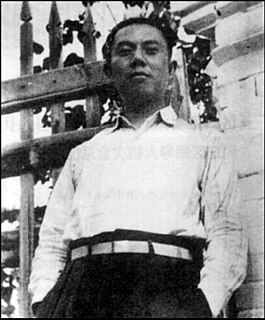 W
WDeng Liqun was a Chinese politician and theorist who was one of the leading figures of the Communist Party of China during the 1980s, most well known for his involvement with the party's propaganda work. Deng was born in Guidong County, Hunan province, and joined the Communist Party in 1936. He came from an intellectual family and joined the party out of intellectual commitment. He was often referred to as "Little Deng", to be distinguished from Deng Xiaoping, the "Old Deng".
 W
WDeng Xiaoping, also known by his courtesy name Xixian (希贤), was a Chinese revolutionary and statesman who served as the paramount leader of the People's Republic of China (PRC) from December 1978 to November 1989. After Mao Zedong's death in 1976, Deng gradually rose to supreme power and led China through a series of far-reaching market-economy reforms, earning him the reputation as the "Architect of Modern China".
 W
WDing Xuexiang is an important political aide of Xi Jinping, current General Secretary of the Chinese Communist Party (CCP). Ding is the current director of the General Office of the CCP. Ding served on Xi's staff beginning in Shanghai, then followed him to Beijing. He is also a member of the 19th Party Politburo, and a Secretary of the Party Secretariat.
 W
WDu Qinglin is a politician of the People's Republic of China. He formerly serves as vice chairman of Chinese People's Political Consultative Conference (CPPCC), and a Secretary of the Secretariat of the Central Committee. From 2007 and 2012 he served as the director of United Front Work Department of Communist Party of China.
 W
WGu Mu (Chinese: 谷牧; pinyin: Gǔ Mù; Wade–Giles: Ku3 Mu4; September 1914 – November 6, 2009) was a Chinese revolutionary figure and politician, who served as the Vice-Premier of the People's Republic of China between 1975 and 1982. As one of Deng Xiaoping's main aides in charge of economic management, he played a major role in implementing Deng's economic reform policies of the 1980s. He was a key figure in the creation of Shenzhen, China's first Special Economic Zone.
 W
WHe Guoqiang is a retired senior leader of the Communist Party of China (CPC). Between 2007 and 2012, He was a member of the Politburo Standing Committee (PSC), China's highest ruling council, and the Secretary of the Central Commission for Discipline Inspection, the party's anti-corruption agency. Earlier in his career, He served as the head of the Organization Department of the Communist Party, the Governor of Fujian, and the Party Committee Secretary of Chongqing.
 W
WHu Yaobang was a high-ranking official of the People's Republic of China. He held the top office of the Chinese Communist Party (CCP) from 1981 to 1987, first as Chairman from 1981 to 1982, then as General Secretary from 1982 to 1987. Hu joined the CCP in the 1930s, and rose to prominence as a comrade of Deng Xiaoping. During the Cultural Revolution (1966–1976), Hu was purged, recalled and purged again by Mao Zedong.
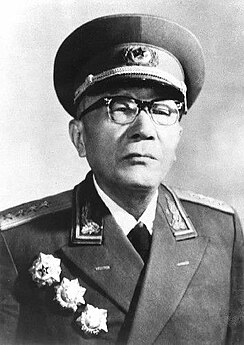 W
WHuang Kecheng was a senior general (大将) in the People's Liberation Army.
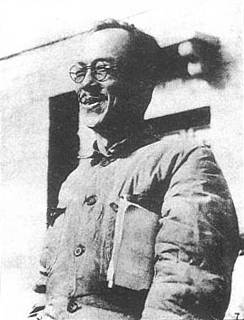 W
WKang Sheng was a Communist Party of China (CPC) official best known for having overseen the work of the CPC's internal security and intelligence apparatus during the early 1940s and again at the height of the Cultural Revolution in the late 1960s and early 1970s. A member of the CPC from the early 1920s, he spent time in Moscow during the early 1930s, where he learned the methods of the NKVD and became a supporter of Wang Ming for leadership of the CPC. After returning to China in the late 1930s, Kang Sheng switched his allegiance to Mao Zedong and became a close associate of Mao during the Anti-Japanese War, the Chinese Civil War and after. He remained at or near the pinnacle of power in the People's Republic of China from its establishment in 1949 until his death in 1975. After the death of Chairman Mao and the subsequent arrest of the Gang of Four, Kang Sheng was accused of sharing responsibility with the Gang for the excesses of the Cultural Revolution and in 1980 he was expelled posthumously from the CPC.
 W
WLi Fuchun was a Chinese Communist revolutionary and politician. He served as a Vice Premier of the People's Republic of China.
 W
WLi Xuefeng was a Chinese Communist politician. He occupied several prominent regional offices prior to the founding of the People's Republic in 1949. In 1960 he became the first political commissar of the Beijing Military Region. He took over the Beijing party organization as its First Secretary after the purge of Peng Zhen in May 1966, and was sent to take the reins of Hebei's Revolutionary Committee between 1968 and 1971. However, his support for Chen Boda during the 1971 Lushan Conference led him to be branded as a supporter of Lin Biao; he was purged and sent into internal exile in Anhui province for eight years. He was politically rehabilitated in 1982, and went on to serve in several advisory positions in the party.
 W
WLi Yuanchao is a retired Chinese politician. He was the Vice President of the People's Republic of China from 2013 to 2018 and the Honorary President of the Red Cross Society of China. He was a member of the Secretariat of the Communist Party of China and head of its Organization Department between 2007 and 2012. From 2002 to 2007, Li served as the Communist Party of China Secretary of Jiangsu, the top leader of an area of significant economic development. Between 2007 and 2017, he held a seat for two terms on the Politburo of the Communist Party of China.
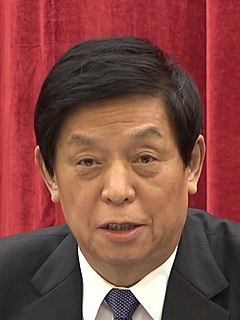 W
WLi Zhanshu is a Chinese politician, and the current Chairman of the Standing Committee of the National People's Congress, the Chinese Speaker. He is a No.3 member of the Politburo Standing Committee of the Chinese Communist Party, China's top decision-making body.
 W
WLing Jihua is a former Chinese politician and one of the principal political advisers of former leader Hu Jintao. Ling was best known for his tenure as chief of the General Office of the Communist Party of China between 2007 and 2012. Ling was charged with corruption, bribery, and other misconduct and was sentenced to life imprisonment as part of a larger campaign carried out by Xi Jinping.
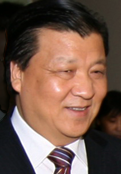 W
WLiu Yunshan is a retired Chinese politician. He was a member of the Politburo Standing Committee, the de facto top decision-making body of China, between 2012 and 2017; he was broadly tasked with the work of the party's secretariat, overseeing propaganda and ideological indoctrination, as well as party organization, in addition to serving as President of the Central Party School.
 W
WLu Dingyi was a leader of the Communist Party of China. After the establishment of the People's Republic of China and before the Cultural Revolution, he was credited as one of the top officials in socialist culture.
 W
WPeng Zhen was a leading member of the Communist Party of China. He led the party organization in Beijing following the victory of the Communists in the Chinese Civil War in 1949, but was purged during the Cultural Revolution for opposing Mao's views on the role of literature in relation to the state. He was rehabilitated under Deng Xiaoping in 1982 along with other 'wrongly accused' officials, and became the inaugural head of the CPC Central Political and Legislative Committee.
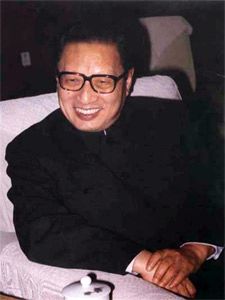 W
WQiao Shi was a Chinese politician and one of the top leaders of the Communist Party of China. He was a member of the party's top decision-making body, the Politburo Standing Committee, from 1987 to 1997. He was a contender for the paramount leadership of China, but lost out to his political rival Jiang Zemin, who assumed the post of General Secretary of the party in 1989. Qiao Shi instead served as Chairman of the National People's Congress, then the third-ranked political position, from 1993 until his retirement in 1998. Compared with his peers, including Jiang Zemin, Qiao Shi adopted a more liberal stance in political and economic policy, promoting the rule of law and market-oriented reform of state-owned enterprises.
 W
WSong Renqiong, born Song Yunqin, was a general in the People's Liberation Army of the People's Republic of China (PRC) and one of the Eight Elders of the Communist Party of China.
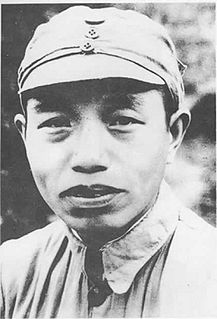 W
WTan Zhenlin was a political commissar in the People's Liberation Army during the Chinese Civil War, and a politician after the establishment of the People's Republic of China.
 W
WTao Zhu was a member of the Politburo Standing Committee of the Communist Party of China.
 W
WWan Li was a Chinese Communist revolutionary and politician. During a long administrative career in the People's Republic of China, he served successively as Vice Premier, Chairman of the Standing Committee of the National People's Congress (NPC), and a member of the Communist Party of China (CPC) Secretariat and its Politburo.
 W
WWang Gang is a retired Chinese politician. He served in prominent leadership positions in the Chinese Communist Party (CCP) after 1999, including Director of the General Office of the CCP and Secretary of the Secretariat. He was a member of the Politburo from 2007 to 2012.
 W
WWang Huning is a leading political theorist since the 1990s and one of the top leaders of the Communist Party of China, a current member of the party's Politburo Standing Committee and first-ranked secretary of the party's Secretariat. He served as the head of the Central Policy Research Office from 2002 to 2020 and as a secretary of the Secretariat between 2007 and 2012. He was named director of Central Guidance Commission on Building Spiritual Civilization in November 2017.
 W
WWang Jiaxiang, one of the senior leaders of the Communist Party of China in its early stage and a member of the 28 Bolsheviks. Wang held a variety of high-level posts in the Party: during the Civil War he was the director of the Red Army's General Office, upon the founding of the People's Republic of China he was the first ambassador to the Soviet Union, and then became the first head of the Party's International Department.
 W
WWang Renzhong was a Chinese political leader. He was born to a peasant family in Jing County, Hebei. In November 1933, he joined the Chinese Communist Party (CCP). From 1938, he served as the vice director of Hebei-Shandong-Henan CCP Propaganda Department, director of South Hebei CPC Propaganda Department, and as a party group secretary. After 1945, he became the director of South Hebei CCP Administrative Office.
 W
WWen Jiabao, also spelled as Wen Chia-pao is a retired Chinese politician who served as the sixth Premier of the State Council of the People's Republic of China and serving as China's head of government for a decade between 2003 and 2013. In his capacity as Premier, Wen was regarded as the leading figure behind Beijing's economic policy. From 2002 to 2012, he held membership in the Politburo Standing Committee of the Communist Party of China, the country's de facto top power organ, where he was ranked third out of nine members and headed by Party general secretary Hu Jintao.
 W
WWu Bangguo is a retired high-ranking politician in the People's Republic of China. He was the Chairman and Party secretary of the Standing Committee of the National People's Congress from 2003 to 2013, a position that made him Chinese Speaker. He ranked second in official rankings of state and party leaders of China.
 W
WXi Zhongxun was a Chinese communist revolutionary and a subsequent political official in the People's Republic of China. He is considered to be among the first generation of Chinese leadership. The contributions he made to the Chinese communist revolution and the development of the People's Republic, from the founding of Communist guerrilla bases in northwestern China in the 1930s to initiation of economic liberalization in southern China in the 1980s, are numerous and broad. He was known for political moderation and for the setbacks he endured in his career. He was imprisoned and purged several times. Xi was also the father of Xi Jinping, the current Chinese President and General Secretary of the Communist Party.
 W
WXie Fuzhi was a Communist Party of China military commander, political commissar, and national security specialist. He was born in 1909 in Hong'an County, Hubei and died in Beijing in 1972. Xie was known for his efficiency and his loyalty to Mao Zedong, and during the Cultural Revolution he played a key role in hunting down the Chairman's enemies in his capacity as Minister of Public Security from 1959–1972.
 W
WXu Caihou was a Chinese general in the People's Liberation Army (PLA) and Vice-Chairman of the Central Military Commission (CMC), the country's top military council. As Vice-Chairman of the CMC, he was one of the top ranking officers of the People's Liberation Army. He also held a seat on the 25-member Politburo of the Communist Party of China between 2007 and 2012.
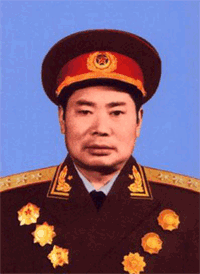 W
WYang Dezhi was a Chinese general and politician. He was senior military officer in the North China Field Army, a veteran of the Korean War and commander in China during the Sino–Vietnamese War.
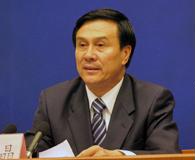 W
WYang Jing is a former Chinese politician of Mongol heritage. He previously served as State Councilor and Secretary-General of the State Council, and the President of the Chinese Academy of Governance.
 W
WYang Yong was a general in the People's Liberation Army of China. He served as the secretary of the Secretariat of the Communist Party of China Central Committee between September 1982 and January 1983, and governor of Guizhou, from January 1950 to April 1951.
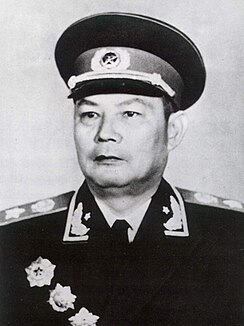 W
WYe Jianying was a Chinese communist revolutionary leader and politician, one of the founding Ten Marshals of the People's Liberation Army. He was the top military leader in the 1976 coup that overthrew the Gang of Four and ended the Cultural Revolution, and was the key supporter of Deng Xiaoping in his power struggle with Hua Guofeng. After Deng ascended power, Ye served as China's head of state as Chairman of the Standing Committee of the National People's Congress from 1978 to 1983.
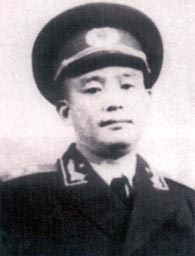 W
WYu Qiuli was a Chinese Communist army officer and politician, general of the People's Liberation Army. A veteran of the Long March, he held top military and government positions under both Mao Zedong and Deng Xiaoping and is considered the founding father of the Chinese petroleum industry and the China National Petroleum Corporation.
 W
WZeng Qinghong is a retired Chinese politician. He was a member of the Politburo Standing Committee of the Communist Party of China, China's highest leadership council, and top-ranked member of the Secretariat of the Central Committee between 2002 and 2007. He also served as the Vice-President of the People's Republic of China from 2003 to 2008.
 W
WZhao Leji is a senior leader of the Chinese Communist Party (CCP) and the Secretary of the Central Commission for Discipline Inspection, the party's top anti-corruption body. Additionally, he is a member of the Politburo Standing Committee, the party's top decision making body.
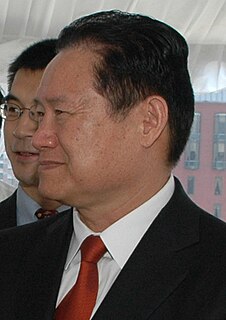 W
WZhou Yongkang is a former senior leader of the Chinese Communist Party (CCP). He was a member of the 17th Politburo Standing Committee (PSC), China's highest decision-making body, and the Secretary of the Central Political and Legal Affairs Commission (Zhengfawei) between 2007 and 2012, making him one of the most powerful leaders in China. In that position, Zhou oversaw China's security apparatus and law enforcement institutions, with power stretching into courts, prosecution agencies, police forces, paramilitary forces, and intelligence organs. He was convicted of corruption-related charges in 2014 and expelled from the CCP in the same year.